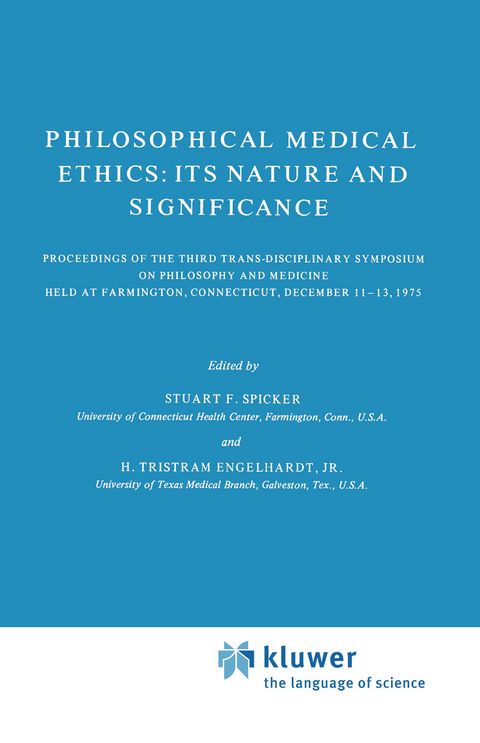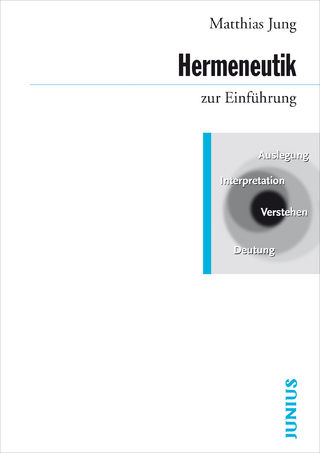
Philosophical Medical Ethics: Its Nature and Significance
Springer (Verlag)
978-94-010-1183-9 (ISBN)
Prologue.- Section I / From Past Perspectives to Present Perplexities.- American Medical Ethics: Some Historical Roots.- Do No Harm: Axiom of Medical Ethics.- Discussion of ‘Do No Harm’.- Section II / Ethics and Medical Ethics.- Medical Ethics: Can the Moral Philosopher Help?.- Medical Ethics and the Rule Against Killing: Comments on Professor Hare’s Paper.- Section III / Special Rights and Duties: From Euthanasia to Experimentation.- Euthanasia and the Right to Life.- Euthanasia, the Right to Life, and Moral Structures: A Reply to Professor Kohl.- Experimentation and Consent: A Note.- Medical Experimentation: The Consent of Prisoners and Children.- Section IV / Changing Human Nature: Medicine in the Service of Virtue.- Aristotelian Ethics, Medicine, and the Changing Nature of Man.- Medicine’s Influence on Ethics: Reflections on the Putative Moral Role of Medicine.- Section V / Metaphysics and Medical Ethics.- Ethics in Evolution.- Coming Into Being and Passing Away: Can the Metaphysician Help?.- Some Persons are Humans, Some Humans are Persons, and the World is What We Persons Make of It.- Section VI / Moral Agents in Medicine.- Patients as Agents.- Moral Agency and Professional Ethics: Some Notes on Transformation of the Physician-Patient Encounter.- Section VII / The Physician as Moral Agent.- Round Table Discussion.- Opening Remarks.- Closing Reflections.- Notes on Contributors.
| Reihe/Serie | Philosophy and Medicine ; 3 |
|---|---|
| Zusatzinfo | VI, 252 p. |
| Verlagsort | Dordrecht |
| Sprache | englisch |
| Maße | 155 x 235 mm |
| Themenwelt | Geisteswissenschaften ► Philosophie ► Allgemeines / Lexika |
| Geisteswissenschaften ► Philosophie ► Ethik | |
| Medizin / Pharmazie ► Medizinische Fachgebiete ► Medizinethik | |
| ISBN-10 | 94-010-1183-4 / 9401011834 |
| ISBN-13 | 978-94-010-1183-9 / 9789401011839 |
| Zustand | Neuware |
| Haben Sie eine Frage zum Produkt? |
aus dem Bereich


